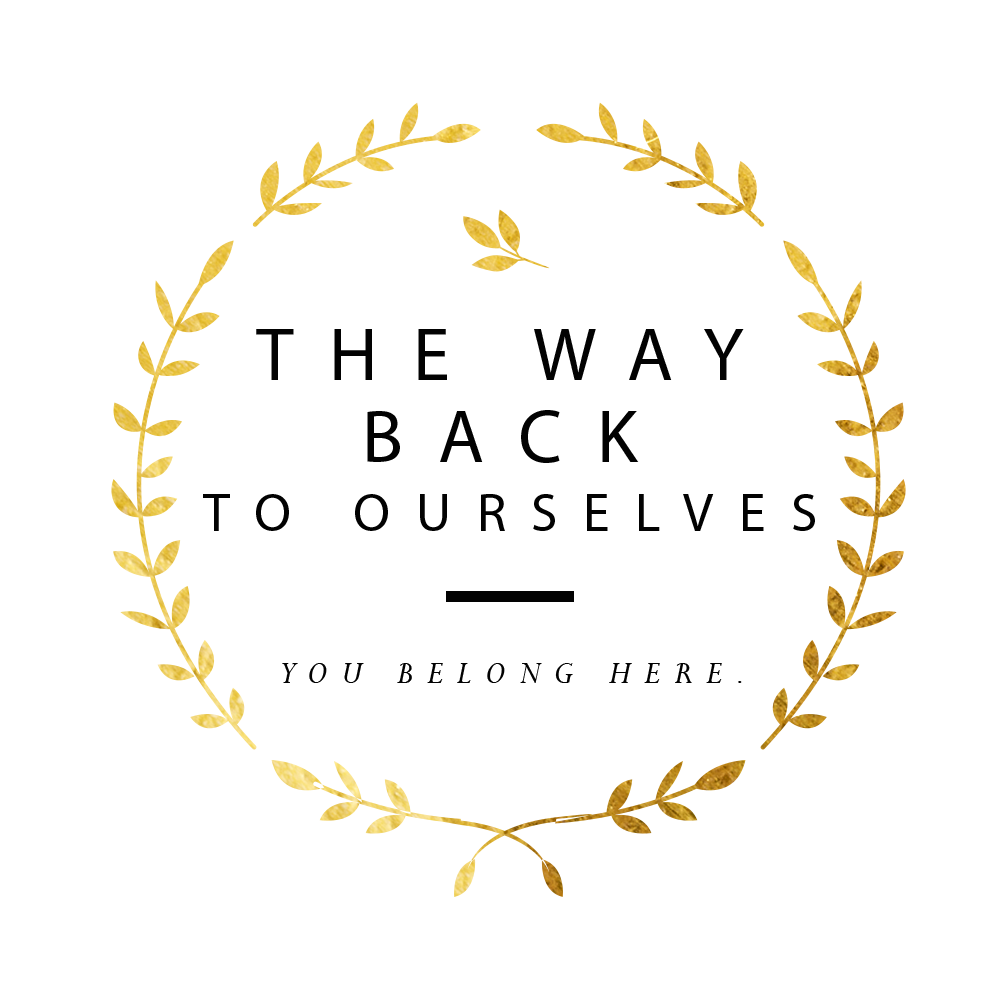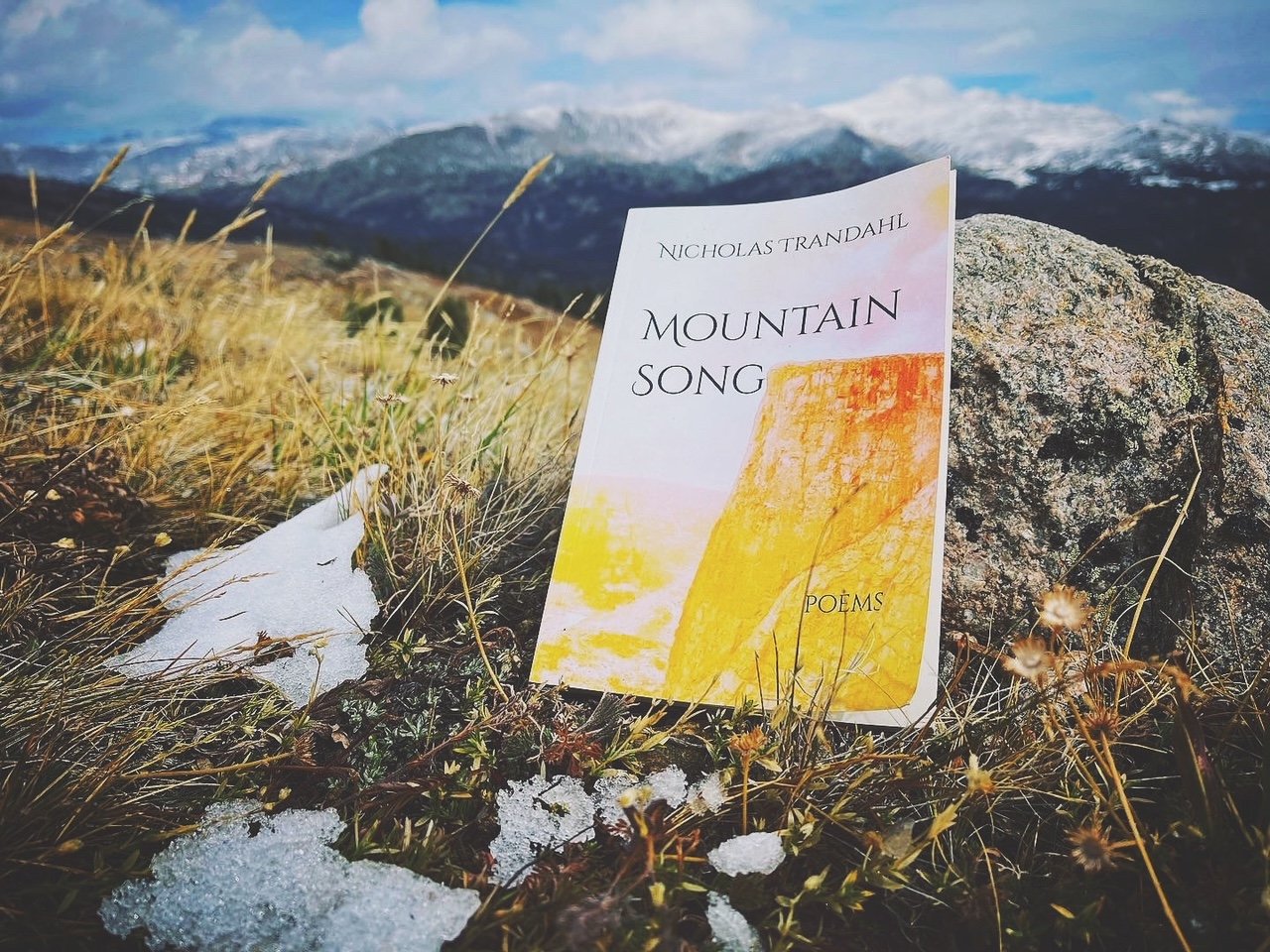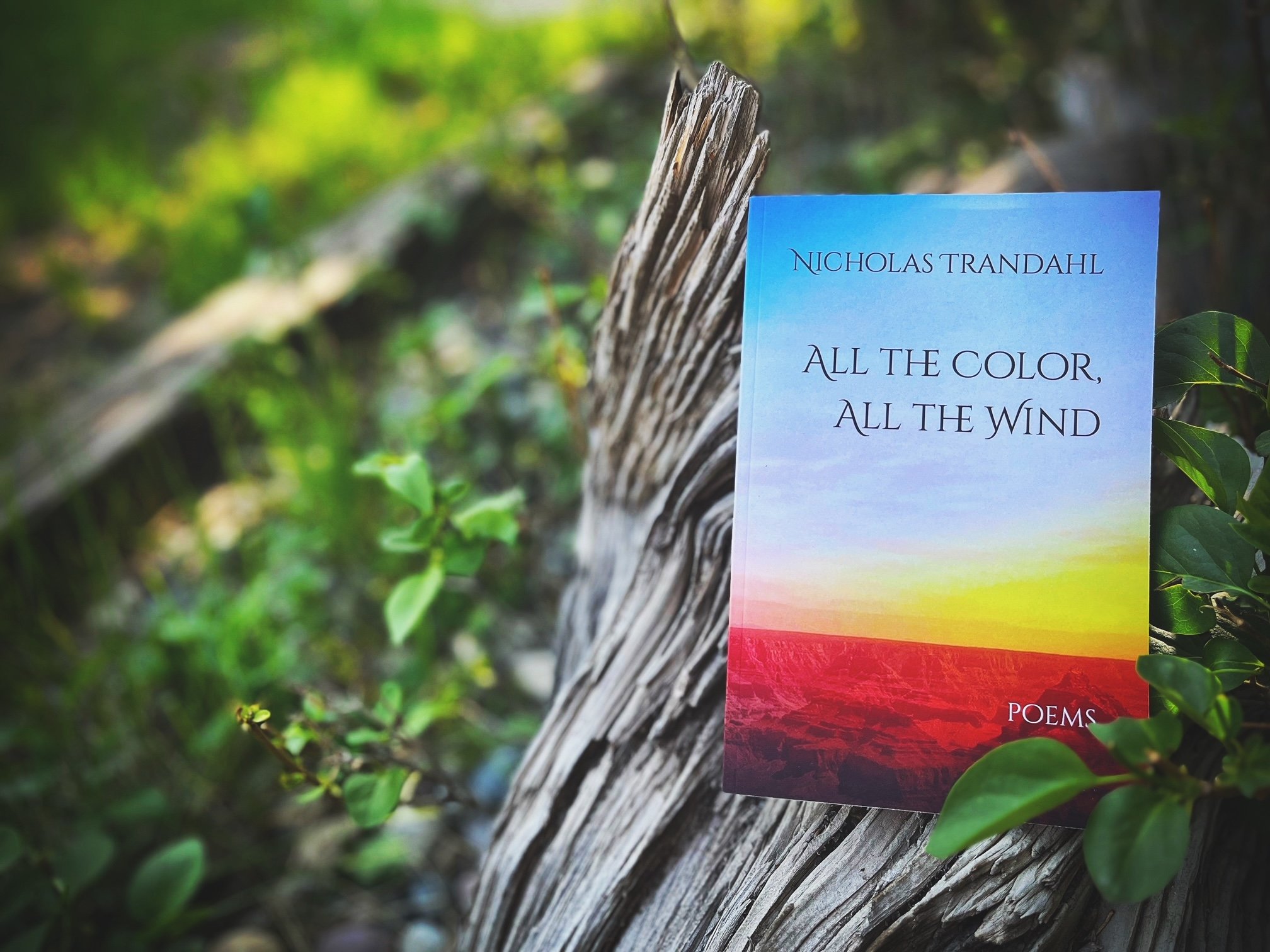The Artist’s Interview: Award-Winning Poet Nicholas Trandahl
Interview with Kimberly Phinney
T H E A R T I S T ’ S I N T E R V I E W
Nicholas Trandahl
Your journey to poetry was quite a harrowing one. Can you talk about your previous experiences and how they led to your artistry?
My first ideas about poetry came like everyone’s, as a stuffy old literary genre we touched on in school. Poetry, or what I thought poetry was, held zero appeal to me in those days.
Many years later, I found myself as a soldier in the U.S. Army in a faraway desert on the other side of the world, and during that deployment I felt overcome by darkness. My sister had mailed me a blank journal while I was over there, and I just started writing in it, scribbling lines of poetry in an effort to self-medicate the desolation and darkness I felt around me and in my soul.
I touch on some of those specific experiences over there in my published poetry. So then, when I returned from overseas, I had a journal full of poems, so I started submitting them to anthologies, journals, and publishers. In a nutshell, it was my difficult experiences as a soldier in the Middle East that guided me onto the trail of poetry.
Nature, beauty, and spirituality are major themes in your work. Why are they such muses for you?
I suppose it comes down to inspiration. I am most inspired when I’m alone above the timberline, on some high alpine ridge, or when I’m looking at a piece of stirring artwork in a museum, or when I’m listening to the sacred chants of Saint Hildegard. Those themes you mentioned are major ones that strike sparks of inspiration in me. Also, for me, it comes down to taking my readers with me to places they might not otherwise go.
If I can bring a reader with me to look at a Georgia O’Keeffe painting, or to the headwaters of a mountain creek to watch a moose and its calf foraging, or to a morning-lit meadow to say the rosary in perfect solitude, then I feel I have done my job as a poet.
When it comes to influences, what writers or artists have impacted your craft and voice the most?
The earliest influences on my writing were Henry David Thoreau and Ernest Hemingway, in terms of exploring and writing about nature and in terms of writing with honesty and authenticity. Later, the poetry of Gary Snyder and Jack Kerouac were major influences in the structure and tone of my poems. The religious writings of Leo Tolstoy, and the epic poems of Dante Alighieri, John Milton, Virgil, Homer, and Ovid have also impacted me, in that my work and my life have become more focused on a search for meaning or truth, often after enduring struggle and hardship. Recently, I have also began reading heavily of the stoics Marcus Aurelius, Seneca, and Lucretius. And those are all just the writers and thinkers that continually impact me.
Various artists inspire me, from Mark Rothko, to Wolf Kahn, to Vincent Van Gogh, to numerous landscape and wildlife painters of the American West, such as Thomas Moran and Carl Rungius.
I’m also an avid fan and listener of classical music. My wife and I attend the symphony regularly, and when I’m working or writing, my favorite works are often playing. The composers I listen to most frequently are Antonio Vivaldi, Nikolai Rimsky-Korsakov, and Hildegard Von Bingen.
How do you see God in your creativity? Or more, how is your creativity a spiritual practice?
My life itself feels like a spiritual practice, and so my writing is definitely that as well. Specifically, I tend to write a lot about the saints and religious figures and about my own quest to know God.
It’s probably my Catholic upbringing or my adoration of Dante’s The Divine Comedy in which the poet literally journeys through hell and purgatory to reach paradise, but I tend to suffer and endure to find myself closer to God or to revelations. I find myself more aligned with the Christian mystics, hermits, and saints of old, than modern worshippers.
When I travel or climb mountains, I see myself on pilgrimages, journeying or suffering for a higher truth, a newfound closeness with God and holiness.
I have never found anything divine or holy in a church or chapel. I’ve found beauty there and fellowship in various congregations. But I have never felt God there. But I’ll tell you where I have felt God: when I’m alone deep in the rugged high country, immersed in His untouched and undomesticated handiwork.
You’re a major outdoorsman and avid hiker. What is the most remote or exotic experience you’ve had when you sat to pen a poem?
I am indeed an outdoorsman, backpacker, and hiker. Living in rural Wyoming, between a few remote mountain ranges and grasslands, the outdoors and the wild are very much a next door neighbor. In my excursions, I frequently observe and write about moose, bighorn sheep, elk, bison, etc. I live a somewhat archaic life, even in the the 21st century, where skills like starting a campfire with flint and steel, navigating rugged backcountry without a trail, and avoiding getting trampled to death by megafauna such as a rutting bull moose or a 2,000-pound temperamental bison are very much alive and present.
One of the most remote and dangerous writing experiences I’ve had, aside from writing poems in the Middle East, was writing lines of poetry by lantern light in a tiny-one person tent in the remote Cloud Peak Wilderness of Wyoming’s Bighorn Mountains, in July, 2021. I had backpacked so many miles, and by the time I reached my destination at an alpine lake at 12,000 feet, a massive sudden thunderstorm had gathered overhead, purple lightning fracturing the thin air and icy rain and hail pouring over me. I huddled against a rock wall and had to cover my pack and my equipment with my body to keep it somewhat dry as I was soaked and frozen to the bone. Also, as this was all happening, three dangerous bull moose stood watching me about fifty meters away.
I prayed hard to God and Saint Christopher in those long scary moments. Eventually, the rain slowed for a bit and I quickly set up my tent, took off my soaked clothes, as night began to fall and the temperature plummeted into the 30s. I was in real danger, especially since campfires are prohibited at that elevation and everything was soaked anyway. As night fell and the rain fell anew, I turned on my lantern, got into some dry clothes, cloaked myself in a small goose down blanket and a big plastic trash bag (an essential backpacking item to keep warm in emergencies), and I took out my trusty poetry journal and began to write to the sounds of the storm, the rumble of surrounding rockslides, and the strange grunts and moans of nearby moose. The rough drafts of the poems “One True Vision” and “Mountain Song” (both available in my poetry collection Mountain Song) were written that night, in that fierce location.
You aren’t only a poet but a leader in your community. What do you hope to give to this wild world with your writing and life of service?
In the last election I was elected mayor of my community and am actively working to help my town seize opportunities and transform into something better. I would like to be remembered as a man that served his nation in a time of war, and as a community leader that served when the people asked me to, hopefully leaving my community better than it was when I was elected mayor. I have no intentions to serve in any higher county or state office, however. My aspirations and passions are local.
As for my writing, however, I want to connect with as many readers around the world as I can. There’s still a stigma against poetry, that its inaccessible and complex. My poems intentionally go the exact opposite direction, and have been frequently reviewed as “authentic” and “accessible.”
I want to help change the perception of poetry, and I also want to remind people of the wildness, beauty, and holiness still evident in our world.
It seems as though people feel the world is ravaged, stripped clean of nature, and synthetic. From my vantage in vast empty Wyoming, in the high country of the American West, the wild is still very much alive and still very dangerous if one isn’t careful. I’d like readers to realize that and experience that through my poems, and hopefully later in person.
You’ve published many books of poetry, traditionally and independently. So, we know this is a tough one, but which book of poetry is your favorite right now and why?
Right now, my most recent poetry collection All the Color, All the Wind is very much on my mind and is read from most at my poetry readings and events.
But my favorite, however, might be my poetry collection Mountain Song. That collection was a game-changer for me on many levels. It tied up a lot of loose ends in my past, and it proclaimed my identity as a poet, man, and seeker more than any of my other collections.
So far, it has received only five-star reviews and has sold more than all my other poetry collections combined, so I feel that Mountain Song also resonated with my readers more than my other collections. Once more readers have gotten their hands on All the Color, All the Wind I feel like it will also do well and be well-reviewed as it doubles down on the themes and content so prevalent in Mountain Song--things such as nature, adventure, spirituality, and mythology. These themes I tend to write about, I feel are largely ignored or forgotten in our hyper-modern digital world, but civilization needs to be reminded of these ancient human values, values that can and should remain important in our lives.
You’ve written hundreds of poems at this point. Any favorite lines or verses you'd like to share? Why do they stand out?
Below are the closing lines of the poem “El Paso Angel” from my collection All the Color, All the Wind:
“Teach me.
Teach me.
All the gods
of this world
and the next
and even the one
that came before—
teach me,
forgive me,
teach me luminous
to forgive
myself.”
“El Paso Angel” was a very important poem for me to write, and the closing lines of that poem are among my favorites I’ve written. This poem was written about my time as a patient in a military hospital in El Paso, Texas, as I struggled to forgive myself for things I felt guilty about when I was deployed as a soldier in the Middle East. I have heard from other well-regarded poets that “El Paso Angel” is the best poem I have yet written.
Also, I will share two of my favorite passages from my poem “One True Vision,” found in my poetry collection Mountain Song:
“I don’t find truth
to be a silent wise man
relaxed on a throne of stone,
with words of peace
and revelation.
Truth is wild.
Truth is angry.”
This first passage, toward the beginning of the poem, is one of my favorites, as it really details the stark wildness of truth, of finding what it is I’d been seeking. Truth or holiness, I’ve found, isn’t some quiet moment of prayer or reflection. Revelation can be savage and brutal, and it can make you feel incredibly small, as I felt in the mountain storm in which I first wrote the rough draft of “One True Vision.”
“In this place
where man should never go,
old wild gods beat their drums
and chant their unknowable words
into thin mountain air,
and I am filled with dread and awe.
I am humbled
by the truth.”
This second passage from “One True Vision” is another of my favorites. They’re the closing lines of the poem, in fact. This was a passage I tooled around with for a while from the rough draft to the eventual final draft of the poem. It depicts exactly what I felt, the dread and awe, of being in the inescapable presence of the truth of the alpine thunderstorm.
9. What has your journey through writing revealed to you personally?
My own pilgrimage through writing has shown me exactly who I am as a man, what values are most important to me, and what I want or am seeking in this time I have here in this world.
Oftentimes, I don’t set out to write a specific poem about something. I just become inspired when I experience certain things and begin writing. These wild undomesticated rough drafts take me places, into cobweb-filled corners of my mind and heart, places I don’t expect to visit. So my writing truly does reveal the makeup of my soul and spirit, oftentimes without intention on my part. I have learned more about myself through poetry than through any other experience, probably aside from becoming a father.
10. If you could only tell our readers only one true thing about life, faith, or artistry, what would it be and why?
As a seeker after truth myself, I am still looking for one true thing. But I do have a little bit of advice on life, faith, and artistry:
Simplify.
Simplify all aspects of your life.
Simplify your routines and schedules, simplify how you love others and guide others, simplify your relationship and communion with God, and simplify your work. Carve out the unnecessary complexities, middlemen, rituals, rules, procedures, and burdens.
BUY NICHOLAS TRANDAHL’S NEWEST BOOKS OF POETRY:
NICHOLAS TRANDAHL
Nicholas Trandahl is an award-winning Wyoming poet and author of four poetry collections. He was the recipient of the Wyoming Writers Milestone Award and has been repeatedly nominated for the Pushcart Prize. A husband and father, Trandahl draws inspiration from his excursions into the backcountry of the American West, his family, his time as a soldier, and from his search for holiness. Trandahl works as a journalist and serves as Mayor of his community. He’s also the poetry editor for The Dewdrop literary journal, and is the chairman of the annual Eugene V. Shea National Poetry Contest.




